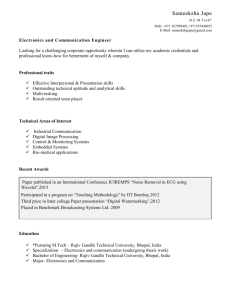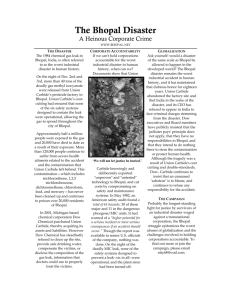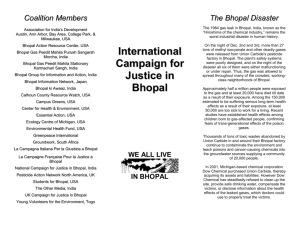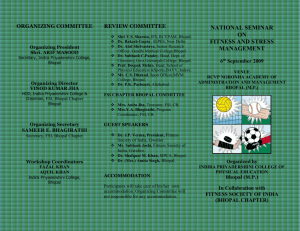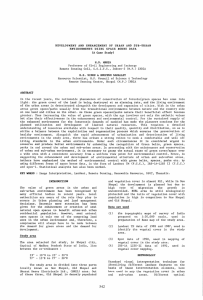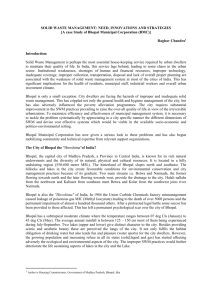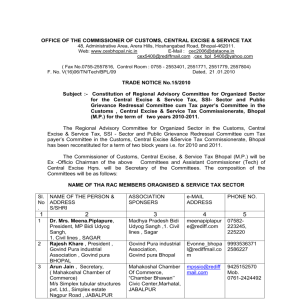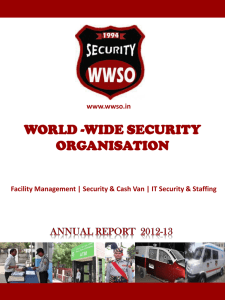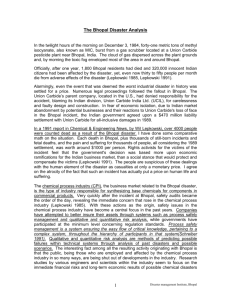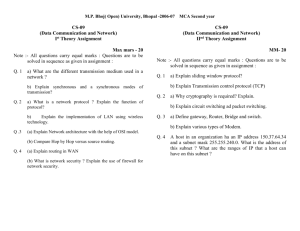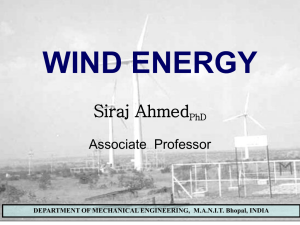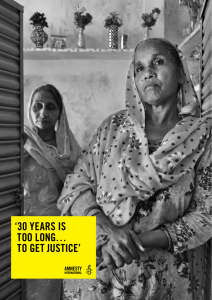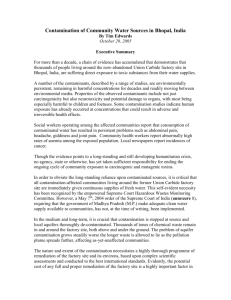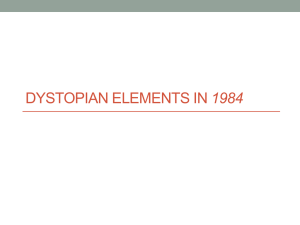Environmental_Justice_and_Community_Development
advertisement
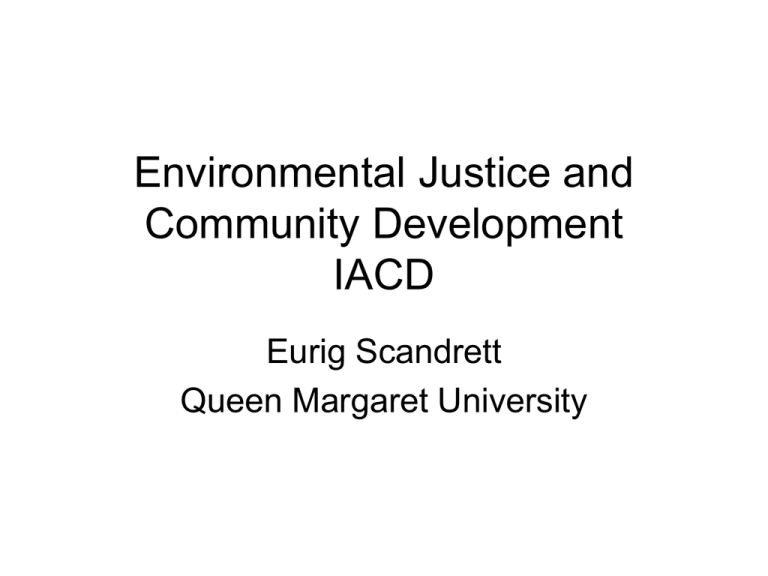
Environmental Justice and Community Development IACD Eurig Scandrett Queen Margaret University Overview • Environmental justice movements in US and Scotland • Bhopal survivors’ movement • Lessons for Community Development Environmental justice • US environmental justice movement as movement of community action groups • Friends of the Earth Scotland. – Community Sustainable Development – Campaign for Environmental Justice – Agents for environmental justice – Popular education Friends of the Earth Scotland Communities in crisis (Acute problems) Expose contradictions Knowledge and skills to respond to crisis Communities not in obvious crisis (Chronic problems) Analyse contradictions Understand context Build movement, alliances Bhopal 1. 1984 gas leak 2. Three waves of mobilisation 3. Five activists’ stories 4. Lessons for community development? Bhopal • 1984: gas leak at Union Carbide insecticide factory, killing ca. 8000 • Spontaneous, unfocussed protest • Arrival of volunteers to assist relief effort • Poisonous Gas Event Struggle Front • People’s Health Clinic • Disintegration of Front from 1985 2nd wave of resistance • State-supported women’s economic rehabilitation work sheds • Workers’ organisation and unionisation against poor conditions, pay, corruption and premature closure. • Women’s unions form basis of protest groups, linking with other groups • 1989 ‘settlement’ between Union Carbide and Government of India 3rd wave of resistance • • • • 1999 Greenpeace exposes contamination 2001 Union Carbide absorbed by Dow Internationalisation of the campaign 2003 small campaign groups unite to form International Campaign for Justice in Bhopal • 2004 Rasheeda Bee and Champa Devi from ICJB awarded Goldman prize Alok Pratap Singh: • when the struggle ends • • • • • • • Educated and from a politically active background (Socialist) Arrived in Bhopal days after gas leak Became leader of Poisonous Gas Event Struggle Front After Front breaks up, focuses on legal and lobbying work Joins Congress Established NGOs to provide employment training and craft production – expands into health / HIV education Appointed to state and government gas rehabilitation committees Critical of perpetual militancy of other campaigns Rasheeda Bee: • politicised worker • • • • • • • From conservative Muslim family, not worked outwith home before gas disaster. Not literate. 1985 Employed in state economic rehabilitation stationery work shed Became leader of Women’s Stationery Workers’ Union Led padyatra to Delhi to demand government terms and conditions 2001 Joined with BGIA to form ICJB on water contamination 2002 Attended Johannesburg WSSD 2005 Awarded Goldman prize for environmental campaigning, established Chingari Trust and started to focus on welfare provision Stationery workers’ union split Abdul Jabbar: • Local, with school education, ran small indigenous leader business before 1984 • • • • • • Appointed Neighbourhood committee secretary, active in Poisonous Gas Event Struggle Front Invited to advise Gas Affected Women Workers’ Campaign which had established as union in sewing centre. Became leader BGPMUS dependent on members’ donations, critical of acceptance of international funds Married BGPMUS activist, later divorced Established NGO to provide training and rehabilitation for gas affected workers using state money Critical of educated intellectuals who will always defect from the poor Balkrishna Namdeo: leader of destitute • From poor rural family, moved to Bhopal in teens for education • Supports himself as street trader and establishes street traders’ union • Joins CPI – later leaves • Establishes Destitute Pensioners’ Struggle Front • 1984 focuses on gas affected pensioners • Welfare provision and campaigning for adequate state provision Sadhna Karnik: • political programme• • • • • • • Educated, middle class, unmarried looking for answers in voluntary work Came to Bhopal in 1984 to support relief effort Active in Poisonous Gas Event Struggle Front, active in People’s Health Clinic Led ‘split’ faction of Front after 1985 Joined CPI, married CPI official and union leader Worked with railway workers and families Co-established BGPSSS as solidarity organisation with CPI affiliated organisations Local struggle only makes sense if part of political programme Sathyu Sarangi: •• anarchist intellectual• • • • • • • Educated, from far-left background. 1984 abandons PhD in metallurgical engineering to support victims Grassroots activist in Poisonous Gas Event Struggle Front. Established People’s Health Clinic. Arrested. Expelled from Front in 1985 after criticising leadership Established Bhopal Group for Information and Action – intellectuals supporting grassroots struggle Split with Abdul Jabbar and Women Workers’ Campaign 1995 Establishes Sambhavna Trust with international funds to provide health care for survivors 1999 Collaborates with Greenpeace to expose soil and water contamination 2001 joins with Stationery Workers’ Union to form ICJB. Builds links with international supporters. People’s democracy, anti-corporatist Issues from Bhopal for community development? • • • • • • • • • • Outsiders – Insiders Educated - Uneducated Funding International relationships Role of the state Role of political parties Militancy vs compromise and concession Role of learning – who is the educator? Trades unions and NGOs Gender and leadership • My message to young people who are into this work is that they should do it as long as they can do it sincerely. If they lose interest they should quit. People who they claim to work for can do without them, they do not need their help or they do not insist on getting help from community workers. People can survive with what they have. People who are not assisted by community workers also survive and people who know how to fight for their rights will do so without any assistance. So my message to the new generation is if they want to do community work they have to be honest and sincere, they should not take advantage or exploit. There is a lot of power in truth. And truth will also be your hindrance because it will cause a lot of problems for you and get you into trouble. •Rabiya Bee, founder of the Bhopal Gas Affected Women Workers’ Campaign (Bhopal Survivors’ Movement Study 2009 p 68)
